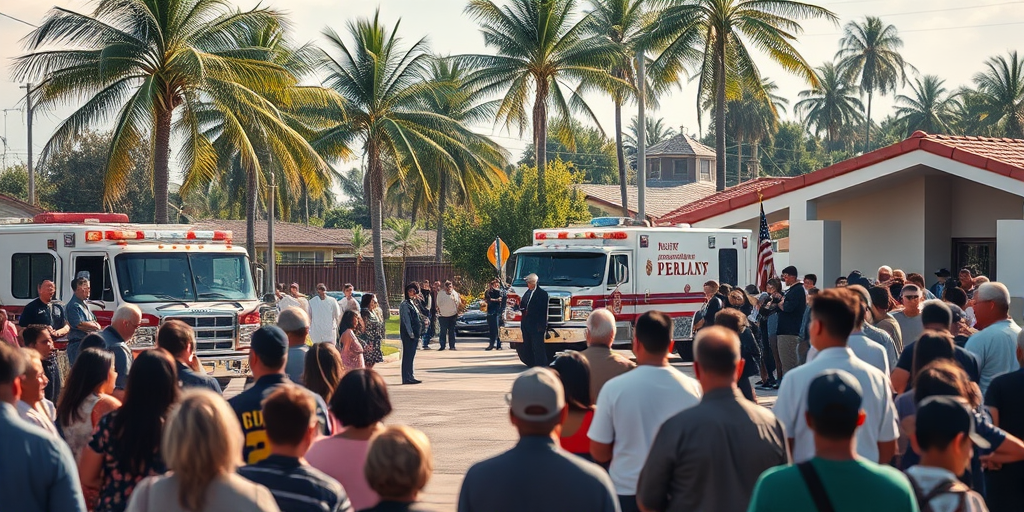Man Found Guilty in 2023 Fatal Harlingen Stabbing
An arrest in a case that shocked the Rio Grande Valley community has reached its judicial climax. Anthony Rodriguez, now 21, has been found guilty of first-degree murder for the 2023 stabbing of Victor Iracheta Jr. following a post-basketball game confrontation. The case, fraught with emotions and community interest, highlights both the volatile nature of youth conflicts and the enduring quest for justice by Valley residents.
The Incident and Trial
The altercation leading to Iracheta’s untimely death occurred on a warm Harlingen evening. What began as a dispute on the basketball court escalated into violence, claiming the life of 24-year-old Iracheta. Rodriguez, then 19, was quickly apprehended and charged with murder. The subsequent trial has been closely followed by the RGV news community, emblematic of the broader social issues at play in South Texas.
The defense maintained that Rodriguez acted in self-defense during the encounter. However, prosecutors painted a picture of an aggressive youth who let anger override better judgment. With deliberations marked by intense scrutiny over intentions and cause, the jury ultimately sided with the prosecution.
Community Reactions and Impact
The trial’s verdict has been a source of mixed emotions within the Valley. For the Iracheta family, there is a sense of closure marred by the permanent absence of a cherished father, brother, and son. Speaking to Channel 5 News, Iracheta’s family expressed relief at the verdict, acknowledging the verdict’s bittersweet nature. “Nothing will bring Victor back, but knowing that justice is served can begin our healing process,” shared one family member.
The wider South Texas community is reminded once again of the latent tensions present in youthful communities. Youth mentorship advocate Maria Torres emphasized, “We need more outreach programs to guide our young people in dealing with conflicts without resorting to violence.”
Connection to Broader Issues
The verdict arrives amid other news poignant to the Valley. Just recently reported was the tragic death of a three-month-old in Mission after being left unattended in a vehicle. Expert commentary highlighted the lethal potential of mild weather, generating community discourse about parental responsibilities and vigilance.
Moreover, the local news spotlighted ongoing issues with childcare safety after an arrest in Brownsville linked to a daycare mishap resulting in a child’s death. These incidents, coupled with news of apprehensions of undocumented immigrants in Starr County, underscore a broader theme of accountability and safety in community narratives.
Forward-Thinking Solutions
As the community processes these developments, attention turns to the lessons offered by each. Community leaders emphasize the importance of proactive engagement and preventive action. Cameron County officials are anticipated to enhance local youth programs with a focus on conflict resolution and emotional intelligence.
While the verdict in Rodriguez’s case may offer some resolution, it equally serves as a catalyst for community action against the cycle of violence and neglect in the Valley. The case has mobilized discussions among policymakers and community interest groups, inciting initiatives aimed at preventing future tragedies.
Rodriguez faces a potential sentence ranging from five to 99 years. His sentencing, scheduled for next week, will mark the final legal chapter of this case but not its impact on collective consciousness. The outcome remains a stark reminder of choices and consequences for the Valley’s youth.
Resources for Valley Residents
In response to the topics addressed by recent events, local organizations are stepping up to offer resources. Community workshops focused on parenting, legal awareness, and youth mentorship are slated to be announced through the Heart of the Valley initiative. Residents are encouraged to contribute views and engage in these programs to bolster community resilience.
Overall, while justice is seen as being served in the Harlingen stabbing case, the incident and its adjudication continue motivating the Valley toward improved community networks and interventions. As the RGV moves forward, the narrative is one not just of resolving past violence but forging paths of peace and proactive care, ensuring the safety and unity of all Valley residents.







